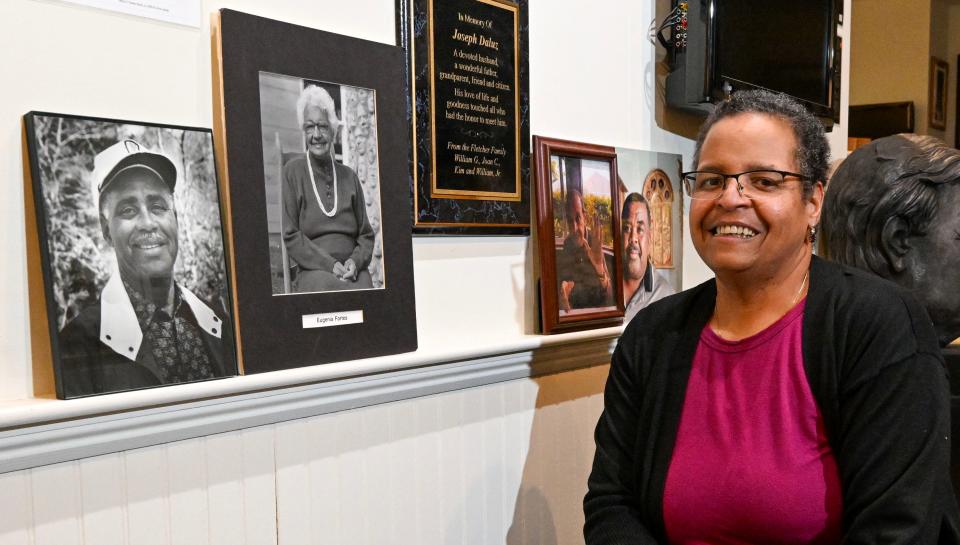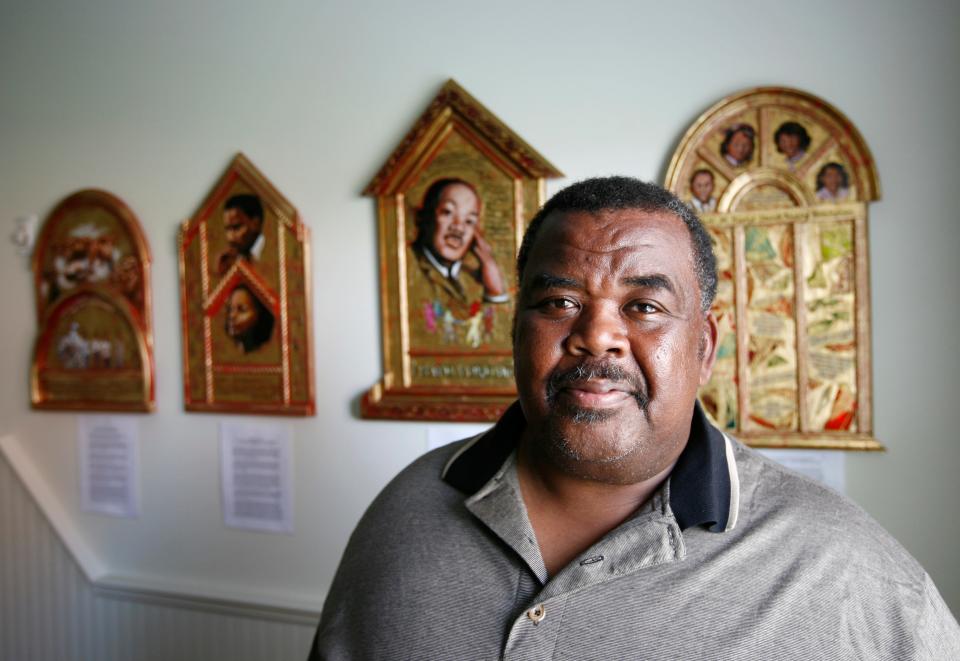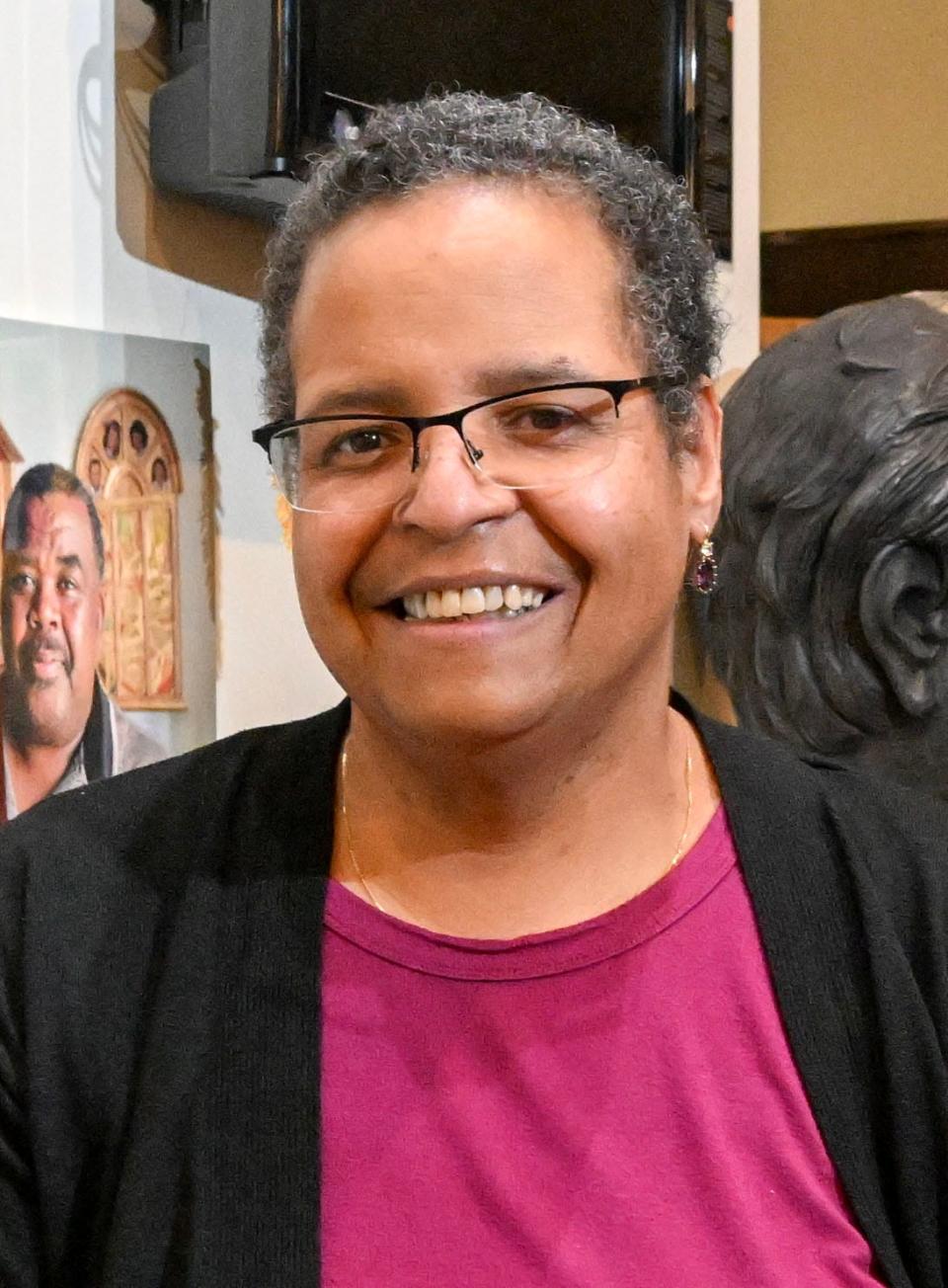'We are going to change that.' Leader of NAACP Cape Cod sees group's wider role, legacy
- Oops!Something went wrong.Please try again later.
In April 1965, Bradford Brown, along with 20,000 people marched behind the Rev. Martin Luther King Jr. from Roxbury to Boston Common. "It wasn't a short march but it was a really good walk," said Brown, 86, who joined the National Association for the Advancement of Colored People Cape Cod Branch in 1962.
King spoke about school desegregation, said Brown. "It was a hopeful time."
Brown said NAACP Cape Cod, founded in 1961, raised money to bring families of all colors to Boston to march with King. The round-trip bus fare to Boston was $17 per person, he said.
"Our members had been sensitized by sit-ins and efforts in the South," said Brown, who at the time worked for the Bureau of Commercial Fisheries at the Woods Hole lab. He now lives in Miami.
At the time, Brown said, NAACP Cape Cod was focusing efforts to establish the Civil Rights Act, the Voting Rights Act, and the Fair Housing Act. The group was also recruiting Black professionals to the Cape and Islands.
The NAACP was founded on Feb. 12, 1909, and its national office was established in New York City in 1910 as well as a board of directors and president Moorfield Storey, a white constitutional lawyer and former president of the American Bar Association, according to the NAACP website.The NAACP gained some racial equity throughout the Cape in the 1970s, and 1980s, said Lynne Rhodes, current Cape chapter president, because of efforts from members like Brown, and past NAACP presidents such as Eugenia Fortes, Joseph DaLuz, Scoba Rhodes and John Reed.
There's been some backsliding, she said, and the same racial inequities in education, housing and employment continue to plague Black community members today.
"The NAACP is still here — we are building, growing again, and we have a lot of members who are actively wanting to make change and make a difference," said Rhodes.

Who is Lynne Rhodes?
Taking the lead of the NAACP Cape Cod has been a long time coming for Rhodes, who was privy to the inner sanctum of the civil rights organization through her father Scoba, who died in 2018.
Besides being president of the NAACP for many terms throughout his lifetime, Scoba Rhodes was also a dean for many years at Upper Cape Cod Regional Technical High School in Bourne, his daughter said.
Scoba always wanted his five children to be involved in civil rights as "a choice, not a demand," said Rhodes, who also serves as a deputy precinct captain in Falmouth.
Lynne Rhodes is the second woman, after Fortes, to serve as chapter president.
After college, Rhodes lived off-Cape until she moved home in 2017. At that time, she began partnering with her father on NAACP initiatives and projects. After Scoba Rhodes' death, Reed stepped up to become NAACP president and became a surrogate father, she said.
"I started to take notes and watch and really take in what everything was about," Rhodes said.
As Reed's confidant, she took over presidential duties when Reed became ill with health issues associated with Parkinson's Disease.
"It was a natural transference. I felt like I had to step up to keep our unit running until John could resume his station," she said. "Unfortunately that didn't occur."
Reed died in February 2023.

What are Rhodes' initiatives for the future NAACP?
When Rhodes was elected NAACP Cape Cod president in December 2022, the first thing she did was reinvigorate membership.
"I recognize the need for community. I want to find ways to get to know each other again and be a support for one another," she said.
Rhodes created social media pages for the NAACP and increased access to monthly meetings. People can now attend meetings virtually or in person at 7 p.m., at the Zion Union Heritage Museum, on the second Wednesday of every month.
She also began building partnerships with other social and racial equity groups on Cape including People of Action, the Martin Luther King, Jr. Action Team and the Barnstable County Human Rights Advisory Commission.
"We are connecting to see how we can be a help to them, and how they can be a help to us," Rhodes said. Since its inception, the NAACP has always addressed voter registration, she said. But now, members will also put some weight behind voter turnout.
Looking at local racial incidents
NAACP Cape Cod members will also look closely at racial incidents that have occurred at schools and workplaces. While complaints of racism have been lodged by community members and parents with the NAACP and the county Human Rights Advisory Commission, Rhodes said, many people don't speak up about racism, microaggressions and macroaggressions because they are afraid to lose their jobs or they are fearful their children will be targeted at school.
The NAACP, Rhodes said, will be a support.
"If you know you’re not alone, it makes a difference," she said.
One of the major challenges the NAACP faces is that people continue to ignore racism, Rhodes said.
"Without having a documented report of instances, there is no way of really recognizing what those problems are. We are going to change that," she said.

The three musketeers
As Rhodes continues to think of new and dynamic ways to lead the NAACP, she said she often looks to presidents of the past. Her father, she said, was a quiet leader, and took turns with DaLuz, who died in 2016, and Reed to run the Cape Cod chapter. Their personalities, she said, complemented one another. Reed was very loud, and "in your face" about issues, Rhodes said. Her father worked behind the scenes and stayed out of the limelight. The coordination between the "three musketeers" managed to attract roughly 300 NAACP members at the time.
"They all knew what needed to be done," Rhodes said. "I appreciate that I was able to watch the progress and see some of the impacts of their decisions."
What does it take to be a civil rights activist?
When Lynne Rhodes was elected chapter president, Brown said he warned her that her duties would often seem overwhelming. Brown served as president of the Miami-Dade NAACP, which, at the time, had about 1,000 members, he said."There's an old saying: when Black folks get in trouble, the first call is to Jesus Christ. And the second is to the NAACP," he said. "You’ve got to be prepared for that."
In the last year, Rhodes has been showing up for the community, Brown said.
After an incident in July, a 14-year-old Chatham boy, who is white, now faces criminal charges in an alleged attempt to drown another boy, who is Black, at a Chatham pond. When the boy was arraigned on charges and released at Orleans District Court, Lynne Rhodes was at the courthouse steps rallying the community together, Brown noted."By showing our support, we send a clear message that racial discrimination and violence will not be tolerated in our community," Rhodes said on the NAACP Facebook page after the incident.
It’s heartbreaking because "there’s so much need for the NAACP to be in so many places at once," she said.
"That's why I'm going to the community and asking for help. I'm looking for change agents who want to call attention to what's going on and make a difference," she said.
For leaders like Fortes, DaLuz, Reed, and Scoba Rhodes, there seemed to be no level of fear, Lynne Rhodes said.
"They made it look easy. They are my legacy. I want to make them proud," she said.
Rachael Devaney writes about community and culture. Reach her at rdevaney@capecodonline.com. Follow her on Twitter: @RachaelDevaney
Get the Cape Cod news that matters delivered to your inbox. Sign up for our free newsletters.
This article originally appeared on Cape Cod Times: What does NAACP Cape Cod look like after the death of John Reed?

